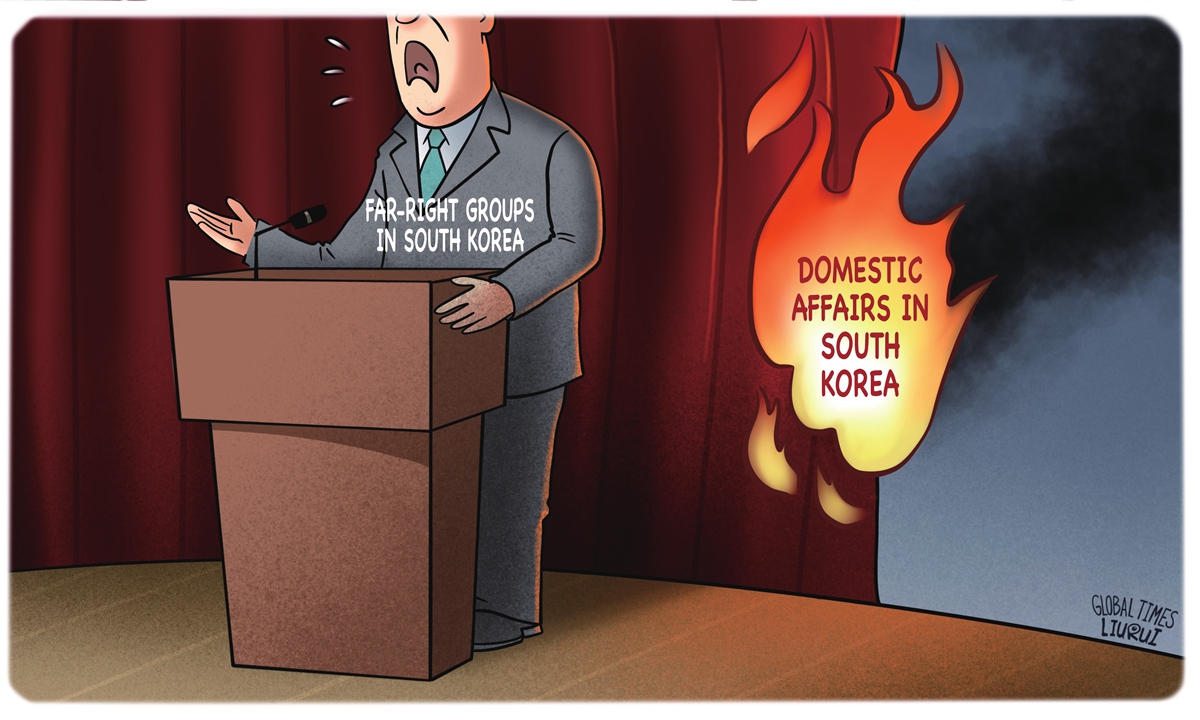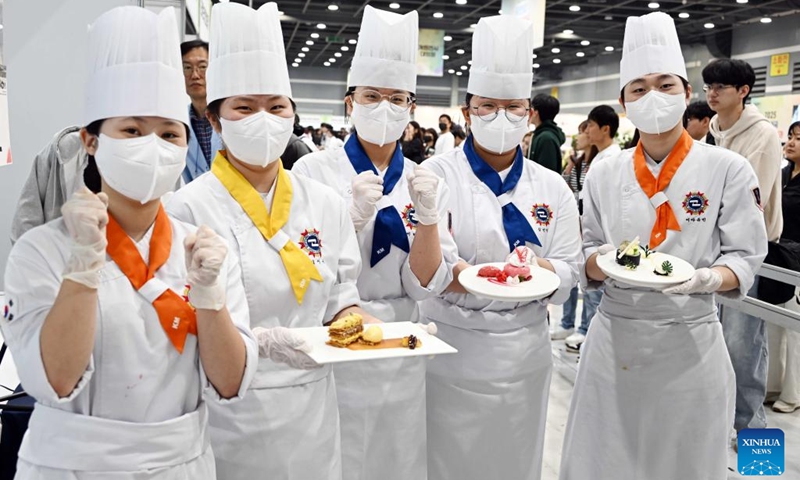Election heat fuels hate in South Korea, but Chinese nationals are not anyone’s scapegoat

Illustration: Liu Rui/GT
As South Korea's presidential election, scheduled to be held on June 3, draws closer, a cloud of anti-Chinese sentiment is casting a shadow over the country. A growing number of media reports point to an alarming trend: Chinese nationals and ethnic Chinese living in South Korea are increasingly targeted by online harassment on the streets. For many in the Chinese community, it has become a time of fear. These individuals now find themselves inexplicably cast as the scapegoats for South Korea's domestic affairs.
To understand the roots of this recent surge in anti-Chinese sentiment, we need to look back to late 2024. Soon after former president Yoon Suk-yeol faced a political crisis following a failed attempt at imposing martial law, certain political forces began searching for scapegoats to deflect public anger. That's when conspiracy theories about "China's interference in South Korea's elections" began to surface.
One South Korean media outlets even claimed that 99 Chinese spies were captured by US forces after Yoon declared martial law. Although, according to the Korea Times, South Korea's National Election Commission quickly issued denials, the rumor continues to spread rapidly thanks to far-right groups.
As a result, anti-Chinese sentiment has spilled over into acts of aggression against Chinese nationals and ethnic Korean-Chinese. Reports show that in April, a protest led by far-right groups erupted near the neighborhood of an owner of a Chinese restaurant in eastern Seoul. This shows that anti-China political attempt and inflammatory conspiracy theories targeting China are having serious real-world consequences. Like malicious scriptwriters, they craft a public narrative that casts China - and by extension, local Chinese communities - as the root of the country's problem. But the cost of such manipulation is steep: It fuels growing hostility toward Chinese residents, undermines their legitimate rights, and risks tearing apart the already fragile bonds of people-to-people friendship between China and South Korea.
Despite years of robust trade between China and South Korea, mutual understanding at the people-to-people level has steadily deteriorated, largely due to the anti-China rhetoric pushed by South Korea's far-right, Zhan Debin, director and professor of the Center for Korean Peninsula Studies at the Shanghai University of International Business and Economics, told the Global Times.
Zhan added that, misled by certain far-right media, some ordinary South Koreans have developed unfounded biases against China and even helped spread anti-China narratives. As a result, the public foundation for friendly cooperation between the two countries has been severely weakened.
What's even more thought-provoking is whether these anti-Chinese "actions" are genuinely motivated by concern for South Korea's own interests. Some media outlets have noted that participants in certain anti-China protests were waving the American national flag. So, is this "patriotism" or simply a display of "pro-US" sentiment? In any case, this reveals exactly whose drum those far-right forces, who hype up anti-Chinese sentiments, are really beating.
During an event in Beijing last week, former South Korean foreign minister Kang Kyung-wha pointed out the real challenges South Korea is facing. "The economy is in a very difficult situation," she said, noting that the declaration of martial law has really sunk in the investors interest in the country, unless South Korea stabilizes and investors see governance based on the rule of law, foreign investors are not going to come back.
The economy is suffering both externally and internally, even as it also has to deal with tariffs coming from the US. The incoming government will have a very difficult list of tasks to deal with, and it can only survive this period by being very pragmatic, Kang stressed.
South Korea's domestic politics must not come at the cost of the safety and dignity of Chinese residents. They are not anyone's scapegoat. Stirring up xenophobia may seem like an attack on outsiders, but in reality, it erodes South Korea from within - damaging its international image, eroding global trust, and narrowing room for rational policy debate at home. In the end, it's the everyday people who pay the price in the country - in economic strain and diminished well-being.

